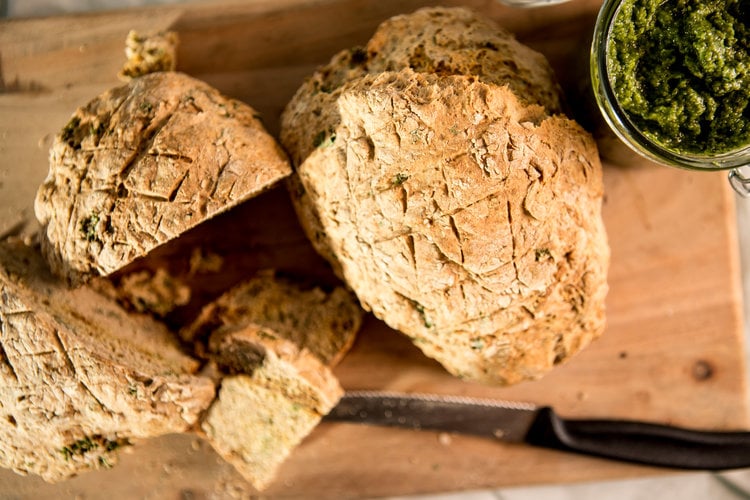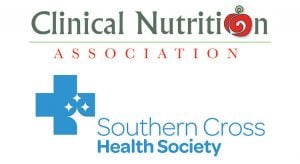What Is Gluten? And How Does It Affect Gut Health?

Most people have now heard of gluten, but many have a pretty poor understanding of what it actually is and how it affects gut health.
A note to consider before reading this post:
Going 100% gluten-free isn’t the answer to great health, gluten affects everyone differently unless you have coeliac disease or are gluten sensitive I wouldn’t restrict it from your diet completely. Most people do however feel a lot better when limiting gluten and consume a wholefoods based diet. I personally am gluten free 80% of the time, as I do enjoy oats, sourdough or homemade spelt flour baked goods regularly, so if you’re not coeliac or gluten sensitive I do not recommend complete restriction, but it’s good to be mindful of gluten consumption when wanting to improve gut health.
First things first: What is gluten?
Gluten is a two-part “sticky” protein naturally found in some grains including barley, rye, wheat and spelt. It acts as a binder, holding food together and adding a “stretchy” quality to foods, as well as helping bread to rise and give it a chewy texture.
What foods contain gluten?
Bread, pasta, most baked goods, snack foods such as muesli bars, wraps, soy sauce, cereals, granolas, crackers, pretzels, noodles (ramen, udon, soba), couscous, tortillas, breading and coating mixtures, croutons, sauces and gravies, sausages, brewer’s yeast.
Why is gluten such a problem now?
Gluten produced today is not like the gluten produced years ago that our parents ate. Wheat grain crops today have been altered to provide crops that can keep up with the demand (faster growing, less time to develop beneficial nutrients) and are more resistant to drought.
What happens in our gut when we eat gluten?
Gluten acts like glue in your intestines (it’s like mixing flour and water together) causing a “sticky” mixture which can stick to your gut lining causing all sorts of problems. However, people react differently to gluten, once you’ve ingested gluten your immune system spots it, and marks it as an “invader”, it then goes into battle mode to try and get rid of it. In people who have no issues with gluten, our immune system is able to attack this invader and “clean it up”. Those with coeliac disease or who are gluten sensitive the body identifies it as a dangerous substance and produces antibodies to attack it, which leads to inflammation and tissue destruction.
Symptoms you may experience if you consume too much gluten:
- Bloating
- Lowered immune function
- Constipation/diarrhoea
- Fatigue
- Flatulence
- Inflammation
- Malnutrition (in particular with persistently low B12 and iron levels)
If you have gut issues or are wanting to reduce your intake of gluten here are some gluten-free options you can enjoy:
- Quinoa
- Brown rice
- Buckwheat
- Amaranth
- Corn
- Sorghum
- Oats (when not contaminated during growing/processing)
- Potato
- Sweet potato
- Pumpkin
- Brown rice cakes
- Brown rice pasta
- Mung bean/black bean pasta
- Kelp noodles
Whats about gluten free products?
Relying on gluten-free products isn’t the answer, just because a product is gluten-free doesn’t mean it needs to routinely become part of your diet. Often gluten-free products such as cookies, chips, snack foods, breads are quite processed and high sugar, salt, saturated fats (the bad kind) and low in nutrients. I want to encourage you to eat whole foods which are nutrient-dense, not nutrient poor.
Never underestimate the power of an outstanding diet rich in natural, whole and unprocessed foods, your body, mind, and soul will thank you for eating this way!
I hope this helps you understand a bit more about gluten and how it affects gut health.
Nat xx

Hi I’m Natalie, a Registered Clinical Nutritionist, health influencer, blog writer & recipe creator. My own health complications prompted me to make positive diet & lifestyle changes, revitalize my health leading to a career change from the corporate world to nutritional medicine. I believe in a wholefoods approach to good health, focusing on simple strategies for modern, busy people.
Let's connect @nataliebradynutrition
The information on this website is not intended to replace the advice of your GP, a one on one relationship with a qualified health care professional and is not intended as medical advice. It is not intended for self-diagnosis, treat, cure, or prevent any disease. I encourage you to make your own health care decisions based upon research and in partnership with a qualified healthcare professional. The entire content of this website is based on the opinions of Natalie Brady, a qualified Holistic Nutritionist, unless otherwise noted. Click here for term and conditions of services.
Copyright © Natalie Brady Nutrition 2022 | Natalie Brady Nutrition Listed in Auckland's Top Nutritionists | Website by Fuel Media



